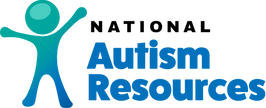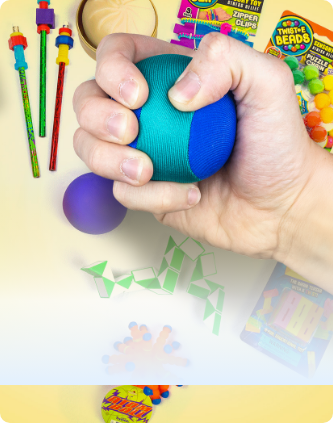PDD-NOS Checklist
Below is a checklist of symptoms a child with PDD-NOS might display. Keep in mind a person is diagnosed with PDD-NOS if they have some behaviors seen in autism but don't meet the full criteria for having an Autistic Disorder.
Checklist for Repetitive Behaviors and Unusual Interests
- lines up toys
- plays with toys in same manner every time
- is very organized
- is rigid about routines or object placements
- upset by changes
- eat few foods or only certain textures
- eats inedible things (pica)
- smells food
- insensitive to pain
Helpful Toys & Games for PDD-NOS
Social Skills
Calming Products for Autism & PDD-NOS
Helpful Classroom Tools
- unaware of danger (e.g., hot things)
- tantrums for no apparent reason
- has obsessive interests
- hand flapping/finger flicking/toe walking
- self-stimulation
- likes spinning objects
- likes to spin him/herself
- likes parts of objects (e.g., wheels)
- does not use toys appropriately (lines up cars by color rather that zooming them)
- special areas of talent or expertise
- perseveration
- walks over things (e.g., toys) unaware
Social Signs & Symptoms Checklist for Communication & Language Symptoms
- repeats words/phrases of others (Echolalia)
- uses own language (jargoning)
- reverses pronouns I/me/my and you/your
- refers to self by name
- does not respond to conversational initiation
- gives unrelated answers to questions
- makes comments unrelated to conversation topic
- does not point
- does not respond to pointing
- uses few or no gestures
- talks in monotone or robot-like
- does not respond to own name
- no pretend play; doesnt understand pretend play
- does not understand jokes, sarcasm, idioms, teasing, or similes
Checklist for Social Symptoms
- avoiding eye-contact (actively or passively)
- looking away
- turning away
- not interested in having friends
- not interested in the activities of others
- not sharing/showing objects or interests with parents
- prefers to play alone
- lives in a world of their own
- does not imitate actions or language
- doesn't smile (or only at familiar people)
- seems unaware of others
- uses people as a tool (e.g., puts mothers hand on jar rather than asking or looking at person for request)
- only interacts to achieve a desired goal
- flat or inappropriate affect or facial expressions
- odd posture (e.g., looks sideways at person)
- does not understand personal space boundaries
- avoids or resists physical contact
- not comforted by others during distress






